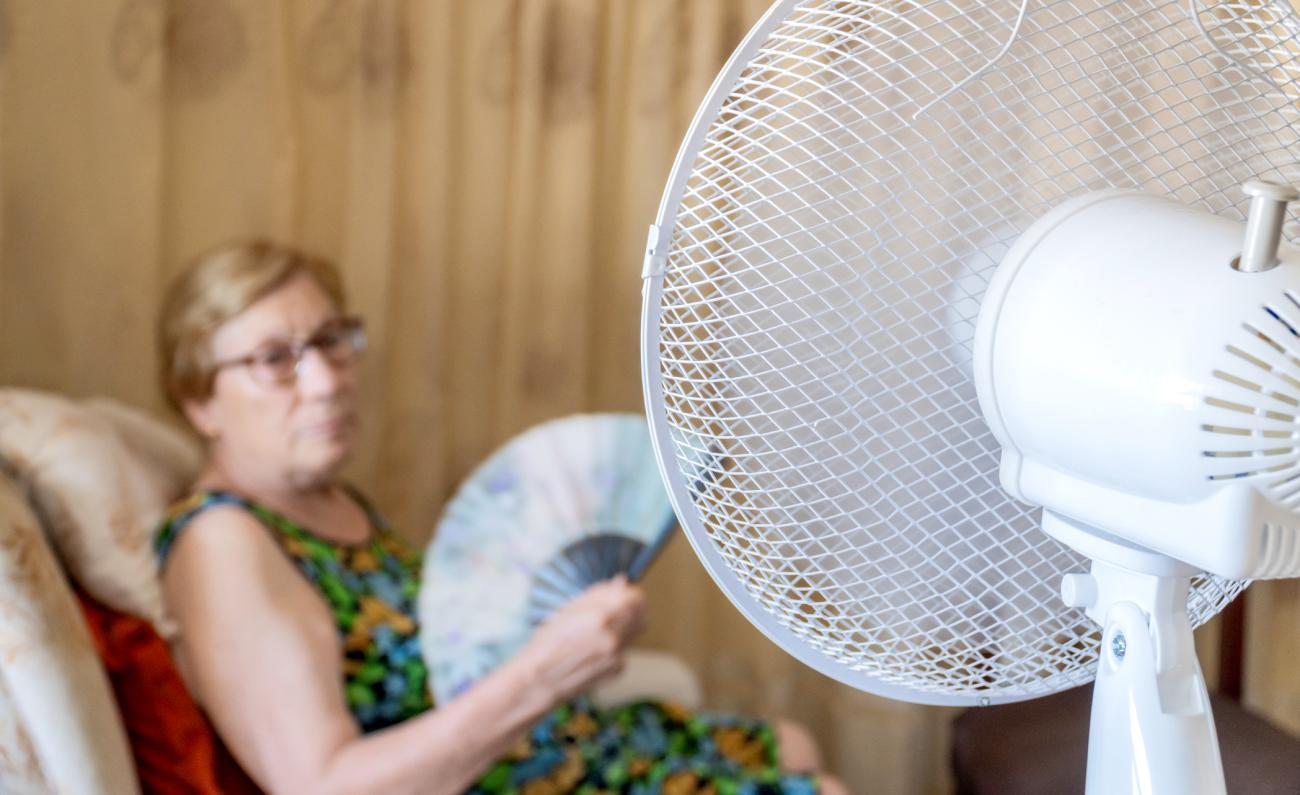
As we head into the hot summer months, our expert shares how everyone — particularly those most vulnerable — can protect themselves during extreme heat events.
Extreme weather events are becoming more common due to climate change and causing significant impacts to the health and well-being of British Columbians. In 2021, an unprecedented heat dome led to 526 heat-related deaths, with 96 per cent occurring in residential settings. With the changing climate comes a crucial need for people to prepare for severe weather conditions and know where to access support. Vancouver Coastal Health Research Institute climate change expert Dr. Liv Yoon explains the disproportionate impact of hot weather on vulnerable populations and shares tips to protect them and everyone from adverse health outcomes during extreme heat events.
Q: What are extreme heat events (EHEs) and how do they impact our health?
A: EHEs are periods of excessively hot weather, often with high humidity, that last several days. There is no standard definition of an EHE across Canada, but B.C. defines an extreme heat emergency as when “daytime and nighttime temperatures get hotter every day and are well above seasonal norms.” EHEs can lead to heat-related illnesses, such as heat exhaustion and heat stroke and can also exacerbate chronic conditions such as cardiovascular and respiratory diseases. Between 1998 and 2017, more than 166,000 people died in heat waves around the world.

Q: How do social determinants of health influence a person’s ability to manage extreme heat?
A: Social determinants of health include housing quality and security, access to health care, living in green versus high-pollution areas, and social connections. These factors significantly influence a person's ability to cope with extreme heat. Heat waves can exacerbate health inequities, as disadvantaged groups often lack resources to stay cool and healthy, such as access to air-conditioned spaces. People facing greater social barriers may need to make more compromises in daily life, such as having to seek shelter from the heat at a mall or library. On the more extreme end, these barriers can lead to illness or death.
Populations more at risk of death or illness during EHEs include individuals with pre-existing diseases, mental illness and substance use disorder, as well as people with disabilities. Older adults, especially seniors, and people who are economically or socially marginalized, are also more vulnerable to extreme heat.
Q: Which geographic regions are more susceptible to extreme heat events and how can this impact someone’s ability to access heat mitigation resources?
A: Urban areas, particularly urban heat islands (UHIs), are more susceptible to extreme heat. UHIs are often located in lower-income and minority neighbourhoods and are characterized by higher temperatures due to dense infrastructure with inadequate cooling features, such as many south-facing windows that receive greater sun exposure through the day. These areas also have limited green spaces and higher population density. Rural areas may also lack resources such as cooling centres and health care facilities, which can negatively impact people’s access to heat mitigation measures.
Additionally, people already living in high-pollution areas, such as near major roadways and heavy industry, are more susceptible to the compounding risk of heat and air pollution. These areas are often located in marginalized communities where policy decisions have led to infrastructure with poor heat-mitigating properties and higher concentrations of polluting industries.
Q: How can research help inform policies to protect people from severe weather?
A: Research can do so much! Research continues to provide data on the health impacts of extreme heat, identifying how various inequities are compounded, and assessing the effectiveness of actions that both individual and wider society can take. In-depth inquiries into specific vulnerable populations, such as people living with schizophrenia, can guide the development of targeted policies and programs to enhance heat wave preparedness and response efforts.
Q: What steps can I take to protect myself and my community during extreme heat events?
A: Stay hydrated, avoid strenuous activities during peak heat hours in the middle of the day, wear light clothing, use air conditioning and/or visit local cooling centres. Community measures can include checking on your neighbours, particularly older adults and people with physical or mental health conditions or disabilities. To realize longer-term, society-wide protection measures, you may choose to contact your local government officials to advocate for more robust, secure quality housing for everyone.
This handy guide — available in multiple languages — shows how to protect yourself both in and outside of the home, as well as how to care for your pets during heat waves.



